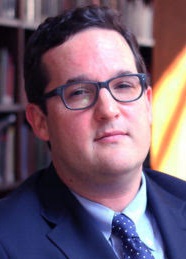RCAT Network: Climate Migration and the Impact on the Future of American Cities
|
21 Oct 2021 |
||
 San Francisco San Francisco
|
||
|
 This Forum presentation provides insight into the real possibility that large numbers of Americans and American cities will be significantly affected by Climate Change and a wave of mass migration will occur as people choose, or are forced, to move North and East to escape the greatest climate impacts. Dr. Keenan will examine a variety of factors that are leading to the movement of people and industries. Despite the enormous socioeconomic impacts, there is a vision of how new investments may harness sustainable urban development to advance social and environmental welfare. As people move North and East in America, we have new horizon for the integration of people, ideas, and values that define a post-climate urban landscape.
This Forum presentation provides insight into the real possibility that large numbers of Americans and American cities will be significantly affected by Climate Change and a wave of mass migration will occur as people choose, or are forced, to move North and East to escape the greatest climate impacts. Dr. Keenan will examine a variety of factors that are leading to the movement of people and industries. Despite the enormous socioeconomic impacts, there is a vision of how new investments may harness sustainable urban development to advance social and environmental welfare. As people move North and East in America, we have new horizon for the integration of people, ideas, and values that define a post-climate urban landscape.
Dr. Jesse M. Keenan is an Associate Professor and social scientist within the faculty of the School of Architecture at Tulane University in New Orleans, Louisiana. Keenan leads courses and seminars advancing the interdisciplinary fields of sustainable real estate and urban development. As a globally recognized thought leader, Keenan’s research focuses on the intersection of climate change adaptation and the built environment, including aspects of design, engineering, regulation, planning, and financing. Keenan is the author of NYC 2040: Housing the Next One Million New Yorkers (Columbia University Press, 2014) and Climate Adaptation Finance and Investment in California (Routledge, 2018), which was awarded Amazon's 'Best Of' Award for "The Best Business and Leadership Books of 2018." Keenan is the co-editor of the books, Blue Dunes: Climate Change by Design (2nd Edition) (Columbia University Press, 2017) and North American Climate Adaptation: Fostering Resilience and a Regional Capacity to Adapt (Springer, 2017). From 2018-2020, Keenan served as a Visiting Scholar at the Federal Reserve Bank of San Francisco (FRBSF) where he led the bank’s first major research initiative in climate adaptation. This research culminated in the edited volume, Strategies to Address Climate Change Risk in Low- and Moderate-Income Communities (FRBSF, 2019), which The New York Times described “one of the most specific and dire accountings of the dangers posed to businesses and communities in the United States” (October 17, 2019).
To find out more about the Rotary Climate Action Teams (RCAT) Network and the Speakers Forum, go here.


